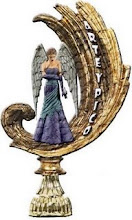I discovered this by flicking through a Christmas books guide that came with one of the newspapers. One of the books featured was Philip Matyszak's Classical Compendium, billed as "a collections of incidents, wisecracks and curious facts from the ancient Greek and Roman worlds. Whether it's wry observations by Socrates or information on the god of manure-spreading, this is the book for you".
It certainly sounds the book for me. How could I resist "information on the god of manure-spreading"?
Sterculius was one of a panoply of gods and goddesses, led by Saturn, originally a fertility god and the Roman god of agriculture. Others included Pomona, goddess of fruit trees, gardens and orchards; Flora, the goddess of flowers and springtime; and Sarritor, the Roman god of weeding and hoeing. (His name is commemorated today in the Canadian company Sarritor, who produce herbicides.) Jupiter had a crucial role as the god of weather, which is why he has a thunderbolt.
The name Conditor, that of the minor god who oversaw the storage of crops, now usually signifies Creator, as in the Advent hymn Conditor alme siderum. Its original meaning was someone who builds, by laying one thing on top of another. Think of apples stacked for winter, or a hayloft.
Mars, now better known as the god of war, was originally the god of fields and boundaries and a protector of farmers. As the Romans moved away from being an agricultural society towards the status of a world power, they decided the Greek gods and goddesses were posher than theirs, so they simply imported them wholesale. Where they had an equivalent, they substituted their own name - such as Jupiter for Zeus, or Minerva for Athene, or Mars for Ares.
Before any of you classical scholars out there complain, I'm aware that I'm simplifying all this in a major way. But I find it fascinating - and it's amusing to speculate on which particular deities the Romans would come up with if they were alive today. Would there be a god of allotments, for example? Or a goddess of organic husbandry? Or perhaps an immortal guardian of sheds?










